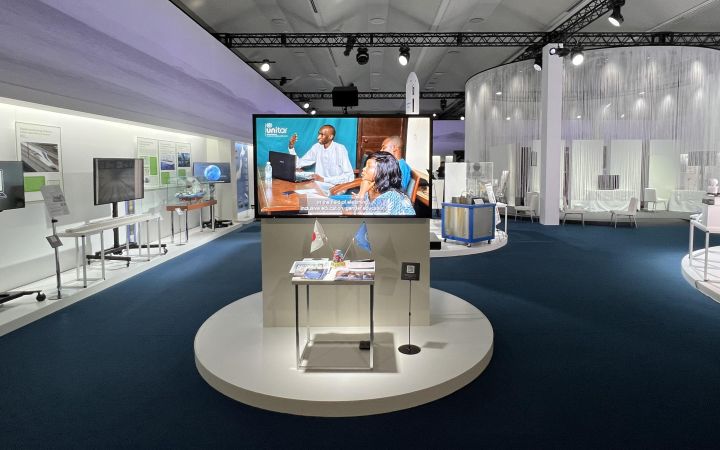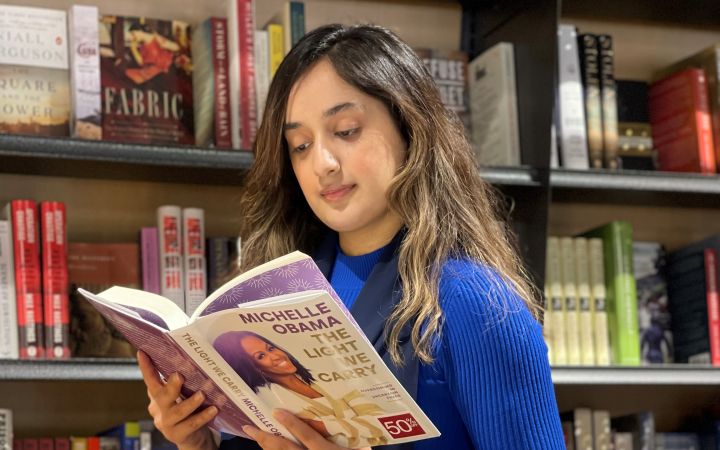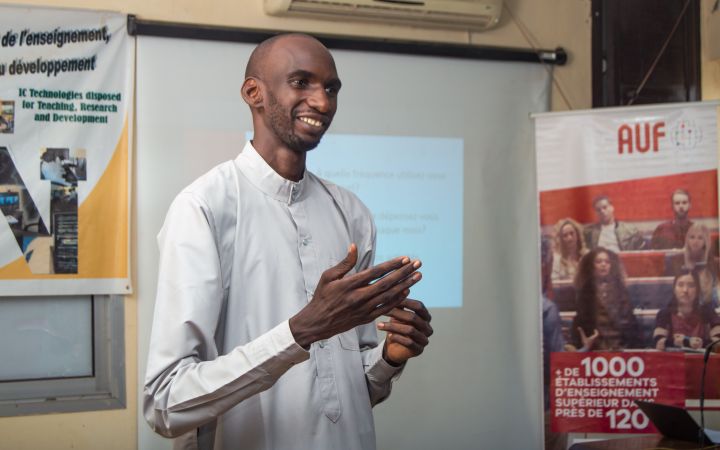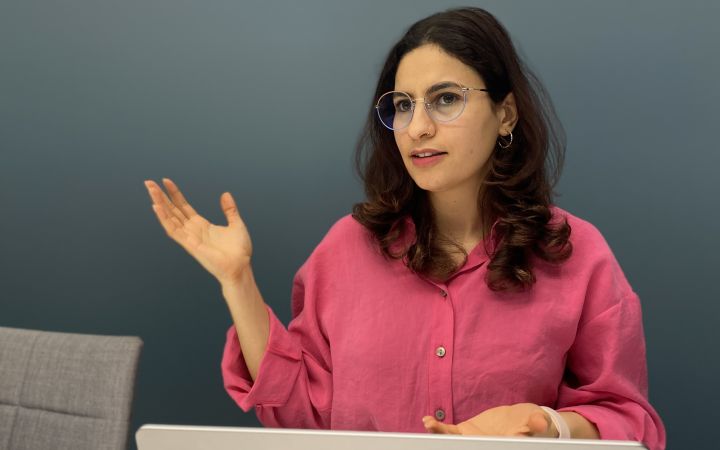18 May 2023, Hiroshima, Japan – The United Nations Institute for Training and Research (UNITAR), with the Government of Japan, is participating in the governmental public relations exhibition in Hiroshima.
Held to coincide with the G7 Hiroshima Summit, the exhibition is open to accredited international and local media from 18 May 2023 and held at the International Media Center at the Hiroshima Prefectural Sports Center. UNITAR is exhibiting under the category “From Reconstruction to Peaceful Society and Sustainable Future”.
The UNITAR exhibition highlights the impact of training women, youth and professionals in Afghanistan, Iraq, and the Sahel region on practical IT skills, including AI and app development.
Bridging the digital divide is essential if we are to achieve the Sustainable Development Goals and leave no one behind. Through inclusive digital skills training run by the Division for Prosperity/Hiroshima Office, young participants gain the knowledge and tools to turn their dreams into reality.
Here are our alumni featured in our exhibit. Learn about their desire to learn and to use their new skills to foster social and economic prosperity in their communities.
Future For Women in Afghanistan: Self-learning to Step Forward
Hosna, a 20-year-old Afghan alumna of the 2021 Leading Inclusive 4IR: Empowering Women in Afghanistan for the Future of Work through Digital Reskilling. The online UNITAR programme reinforced her belief that self-study is key to women's empowerment in Afghanistan. She is now working outside Afghanistan on an online platform providing opportunities for women in Afghanistan to learn computer programming and English. She wishes for the people of Afghanistan to keep their hopes.
Read more about Hosna and her vision for Afghanistan
Building a Better Cameroon: Tackling Illiteracy Through Technology
Educator and UNITAR alumnus Mohamadou Bello wants to make learning accessible to more women and young people in Cameroon. Mohamadou is creating a multilingual e-learning platform, using his experience with digital learning and what he learned in the UNITAR 2021 Strategic Response to COVID-19 Crisis: Empowering the Sahel Region through Digital Reskilling and Upskilling to Enhance Productive Sources of Livelihood and Employment programme. The programme helps professionals from the Sahel region transform their entrepreneurial ideas into digital products that address critical local issues.
Read more about Mohamadou and his work to tackle illiteracy in Cameroon
Showing Women in Iraq “You Can Do Anything”
Meet Raghad Al-Abboodi, a software engineer in Iraq. Raghad participated in the 2019 UNITAR training programme Empowering Social Entrepreneurs and Youth Leaders for Iraq. After completing the UNITAR programme, Raghad founded She Codes Too, where she teaches Iraqi women to code. In 2022, Raghad returned to UNITAR programmes as a resource person for the Waffle Camp × SDGs Workshop. Through empowering the women in her community and leading by example, Raghad wants to convince Iraqi women that they can do anything.
Read more about Raghad and her actions for Iraqi women
About UNITAR
The United Nations Institute for Training and Research (UNITAR) is a dedicated training arm of the United Nations. In 2021, UNITAR trained 370,139 learners around the world to support their actions for a better future. In addition to our headquarters in Geneva, we have offices in Hiroshima, New York, Bonn and various networks around the world.
One of the eight divisions of UNITAR, the Division for Prosperity, based in the Hiroshima Office and Geneva Headquarters, seeks to shape an inclusive, sustainable and prosperous world. World-class learning and knowledge-sharing services on entrepreneurship, leadership, finance and trade, digital technologies, and nuclear disarmament and non-proliferation are offered. We empower individuals from developing countries – especially women and young people – to address inequalities. Our alumni are making a difference in least-developed countries, countries emerging from conflict, and small-island developing states.





